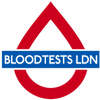Coeliac disease - understanding the signs and symptoms
While coeliac disease is generally understood to involve a reaction to gluten, it’s commonly confused with more general food intolerance. This misunderstanding can lead to an unnecessary avoidance of foods for some, and an under estimation of the severity of their intolerance for others.
Let’s take a look at coeliac disease and the symptoms.
A sharp drop in weight, combined with other symptoms, can be an early sign of coeliac disease. This is because your body finds it harder to absorb nutrients, which may lead to malnutrition and weight loss.

Efficient and gentle, I barely noticed the process and before I knew it, the samples were collected for my blood draw.
What is coeliac disease?
Unlike food intolerance, which affects around 45% of the UK population, coeliac disease affects around 1 in 100 people.
It is an autoimmune disorder which can cause a host of symptoms, from gut problems to skin issues, nutritional deficiencies and even fertility complications.
These symptoms are trigger when a person with the condition eats gluten – the protein found in wheat, barley and rye. This activates an immune response as the body mistakes the protein as a threat, causing inflammation and damage to the small intestine.
Symptoms can vary from person to person, but some of the most common include:
Bloating and gas
Coeliac disease can cause inflammation in your digestive tract, which may result in bloating and other digestive issues.
In some cases, gluten may cause digestive concerns like bloating even for people who don’t have coeliac disease. For instance, one study found that gluten worsened symptoms like stomach pain, bloating, and fatigue in people with irritable bowel syndrome. This is where it can be confusing working out whether a reaction to gluten is a general intolerance or something more serious, so it’s helpful to consider other symptoms, too.
Diarrhoea
Loose, watery stools are one of the first symptoms that many people experience before being diagnosed with coeliac disease.
Following a gluten-free diet usually resolves many symptoms of coeliac disease, including diarrhoea but it’s important to keep in mind that there are many other possible causes, such as other food intolerances or intestinal problems.
Constipation
While coeliac disease may cause diarrhoea in some people, it can cause constipation in others.
Coeliac disease damages the intestinal villi responsible for absorbing nutrients. As food travels through your digestive tract, the villi can’t fully absorb nutrients and instead absorb extra moisture from the stool. This leads to hardened poo that’s difficult to pass.
Following a gluten-free diet may not help with constipation as may important high-fibre foods such as grain are avoided, so it’s important to include plenty of fibre-rich fruit and veg and stay hydrated.
Fatigue
Decreased energy levels and fatigue are common in people with coeliac disease. Untreated coeliac disease can cause damage to your small intestine, resulting in vitamin and mineral deficiencies that can lead to decreased energy levels.
Iron deficiency anaemia
It’s estimated that around 40% of people with coeliac disease also experience iron deficiency anaemia. This is because coeliac disease may impair nutrient absorption, leading to low levels of iron.
Symptoms of iron deficiency anaemia include:
- chest pain
- dizziness
- fatigue
- headaches
- weakness
Weight loss
A sharp drop in weight, combined with other symptoms, can be an early sign of coeliac disease. This is because your body finds it harder to absorb nutrients, which may lead to malnutrition and weight loss.
A study in older adults with coeliac disease found that weight loss was one of the most common symptoms. Following treatment, symptoms were resolved, and participants gained an average of 17lbs.
Itchy skin and rashes
Celiac disease may cause dermatitis herpetiformis, a type of itchy, blistering skin rash found on your elbows, knees, or buttocks. Around 17% of people with coeliac disease experience this tell-tale rash.
Are there other complications linked to coeliac disease?
If left untreated, coeliac disease can be associated with several other health problems, such as:
- bone, muscle, or joint pain
- infertility
- numbness, tingling, and nerve pain
- nutritional deficiencies
- osteoporosis
Managing the symptoms of coeliac disease
Celiac disease is a lifelong condition that has no cure. However, people with this condition can manage their symptoms effectively by following a strict gluten-free diet, avoiding any products containing wheat, barley, rye, or spelt.
A London based private testing service coeliac disease
If you often experience the symptoms we’ve discussed in this article, and think it may be due to coeliac disease, it may be a good time to get conformation so you can take the right steps to optimise your diet.
Private blood testing is becoming a popular solution for a whole range of medical and diagnostic checks, for people who want quick access to important information about their health and wellbeing. And with our central London walk-in clinic, getting that information is easy.
At Blue Horizon we offer an advanced coeliac disease blood test which can give you all the answers you need to make an informed decision about your health and treatments.
Booking your private coeliac disease test in London
We make sure the experience of booking a private coeliac disease blood test is as easy, convenient, and painless as possible. Here’s how it works:
After you have selected the right test for you, simply order online through our secure payment system or chat to a member of our team.
Once your order is placed, you can attend our central London walk-in clinic to have your blood taken by one of our expert phlebotomists. This guarantees that your blood samples are taken and handled correctly and that your results are processed efficiently by clinical professionals.
At your appointment, the friendly team will talk to you about your test, collect your blood sample and send it off for testing at an accredited partner laboratory. All you need to do is arrive for your blood draw.
Clear, accurate results for fast peace of mind
The time it takes to receive your results will depend on the type of test you have chosen. When they are ready, your results will be sent directly to you, via email, within the time specified. If you would prefer to receive a paper copy of your results through the post, that can be arranged for you.
You can also choose the option of reported or unreported results. Reported results include information and comment from our GP which you may find helpful to discuss with your own consultant, or for your records.









